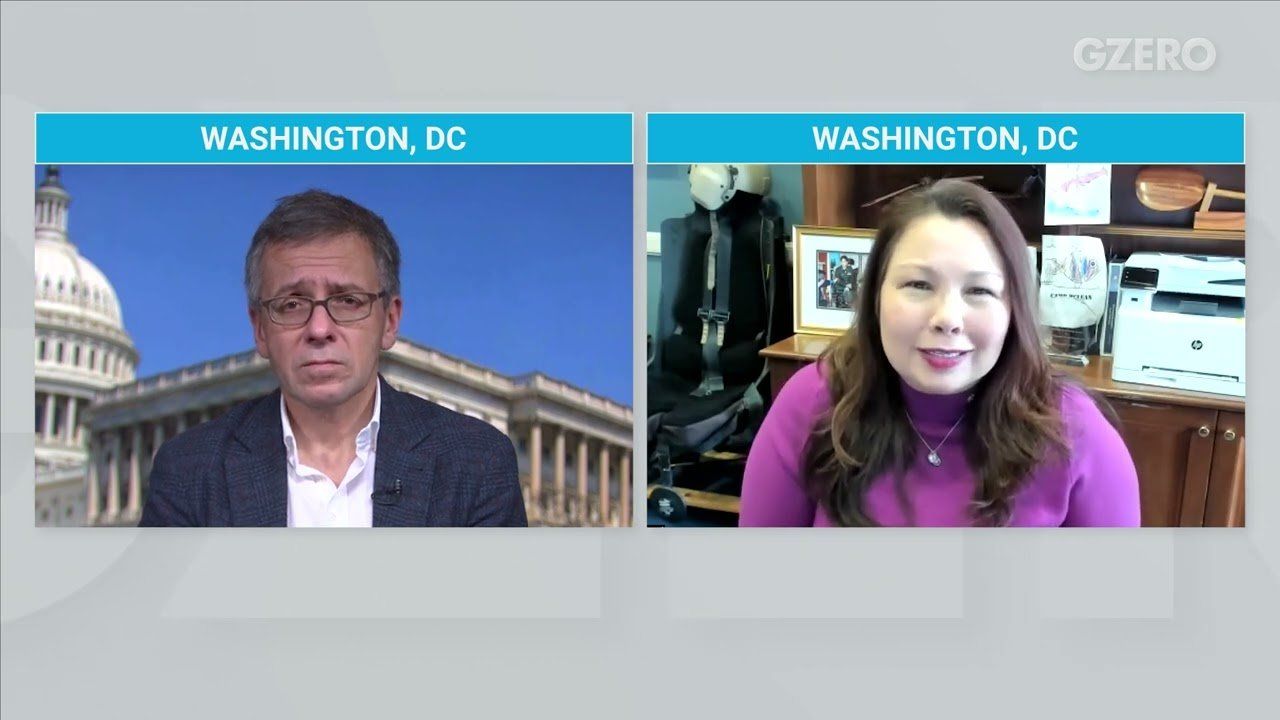GZERO World Clips
From combat pilot to Senator: Tammy Duckworth's reflections on the Iraq War

From combat pilot to Senator: Tammy Duckworth's reflections on the Iraq War | GZERO World

Reflecting on the 20-year anniversary of the start of the Iraq War, Senator Tammy Duckworth on GZERO World shares her personal experience as a combat pilot and how losing both her legs during the war pushed her to keep serving her country through government. As a member of the Senate Armed Services Committee, she stresses the importance of keeping the promises made to veterans, saying that "breaking those promises impacts military readiness."
Senator Duckworth acknowledges the progress made in Iraq, noting that "people are significantly better off than they were under Saddam Hussein." However, she believes that Iraq "is somewhat unfinished business" due to the high unemployment rates faced by young people, and hopes it can become a "friend and ally" to the United States.
The Senator also expresses concerns about the influence of Iran and factions within Iraq, including within the government. She highlights the ongoing issues in the Kurdistan region, where the Kurds face negative oversight from the government in Baghdad while trying to run their autonomous area responsibly. According to Senator Duckworth, "there is still much work to be done in Iraq," even after two decades.
Watch the GZERO World episode: Iraq War's legacy: Loss of lives, rise of ISIS, & political turmoil
As expected, the Supreme Court struck down the bulk of Donald Trump's sweeping “Liberation Day” tariffs as illegal … and almost nothing changed.
Chris, an Army veteran, started his Walmart journey over 25 years ago as an hourly associate. Today, he manages a Distribution Center and serves as a mentor, helping others navigate their own paths to success. At Walmart, associates have the opportunity to take advantage of the pathways, perks, and pay that come with the job — with or without a college degree. In fact, more than 75% of Walmart management started as hourly associates. Learn more about how over 130,000 associates were promoted into roles of greater responsibility and higher pay in FY25.
Somewhere in the Donbas region, Ukrainian soldier Artem Bondarenko says he hasn’t slept through the night in months as he defends Eastern Ukraine.
In the latest episode of Vladimir Putin and Xi Jinping's hit wellness podcast This Authoritarian Life, we learn how positive communication patterns can break negative cycles in our relationships -- especially our relationships with Iran, Syria, Venezuela, and Cuba. #PUPPETREGIME